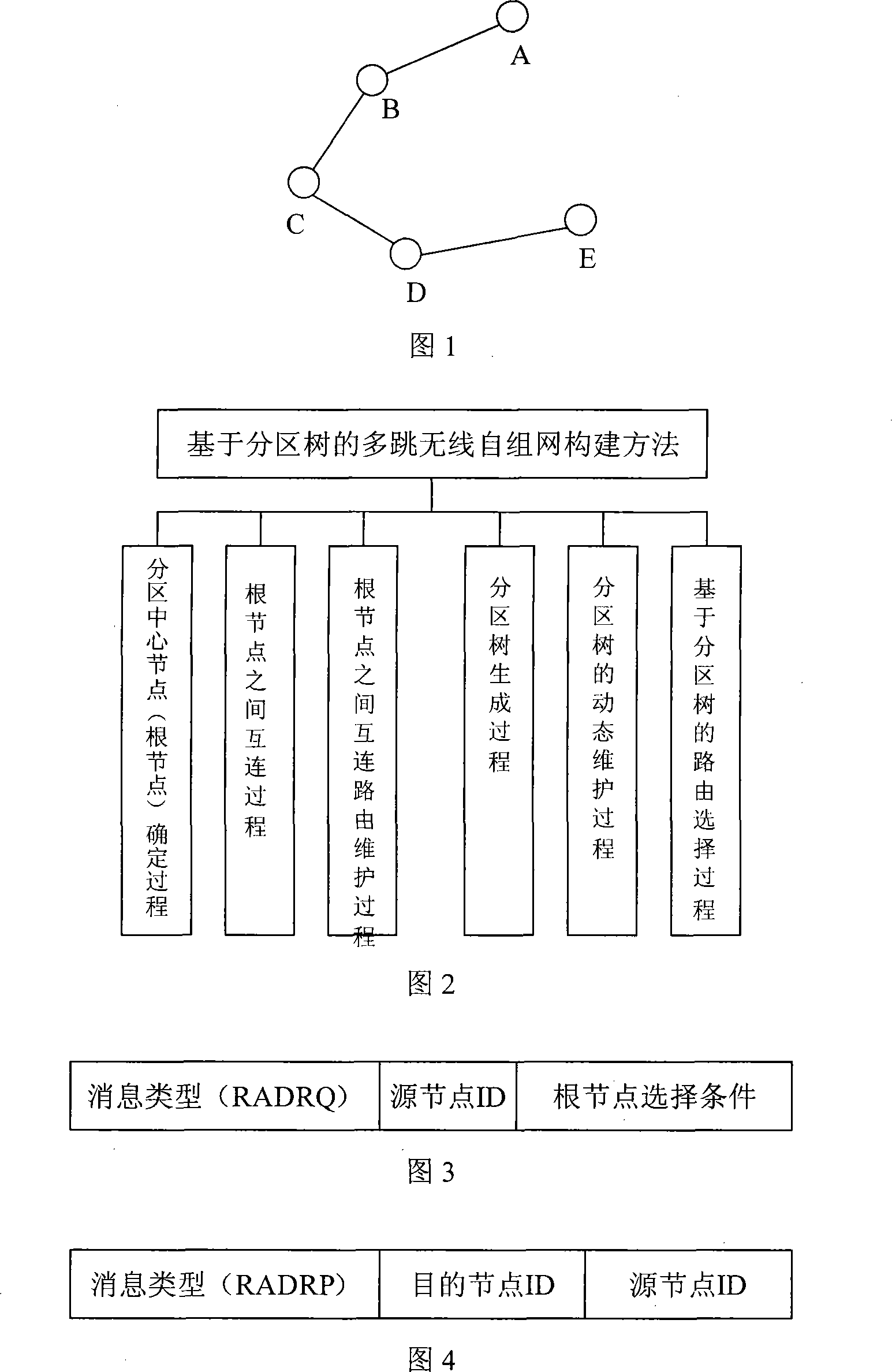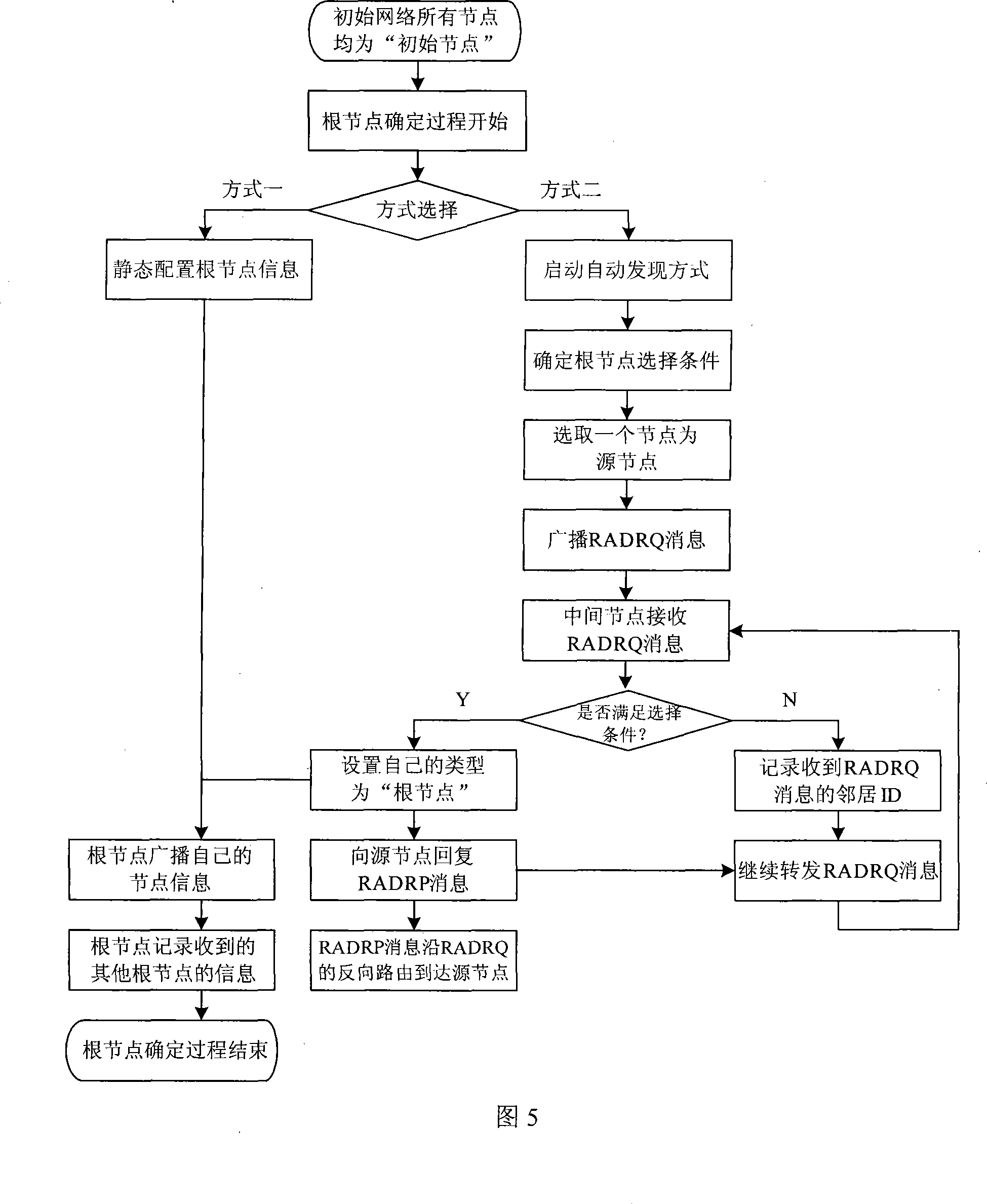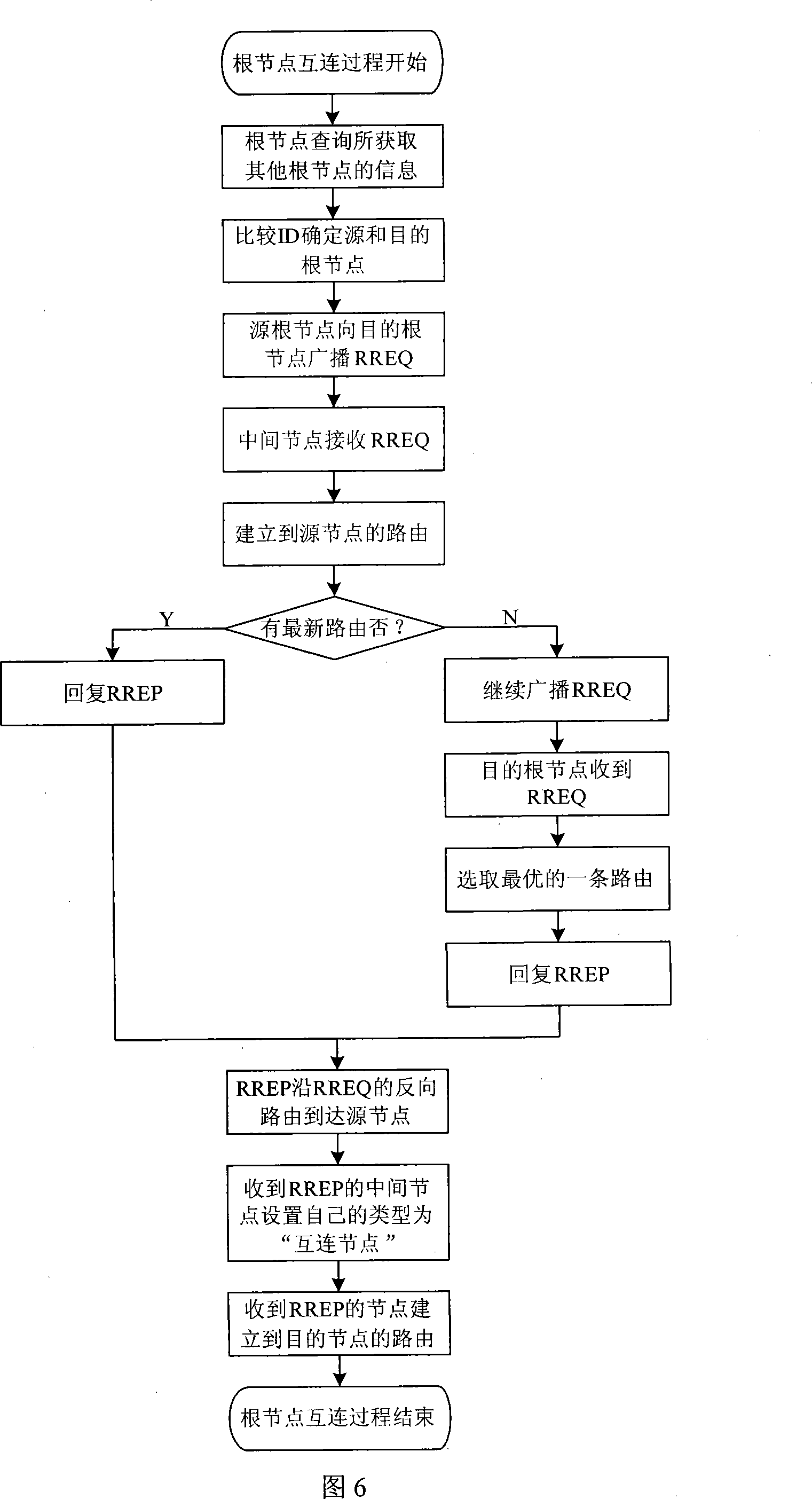Multi-jump wireless self-organizing network construction method based on partition tree
A network construction and partition tree technology, applied in star/tree network, network topology, wireless communication, etc., can solve the problems of complex protocol, high cost of virtual base station and routing, and non-optimal path.
- Summary
- Abstract
- Description
- Claims
- Application Information
AI Technical Summary
Problems solved by technology
Method used
Image
Examples
Embodiment 1
[0109] The initial network is shown in Figure 12. There are a total of 22 nodes, all of which are initial nodes, have network unique identifiers (ID or addresses), and are in a peer-to-peer position. A connection between nodes indicates that there is a wireless connection between two nodes. Link, can communicate directly.
[0110] 1. Determine the central node (root node) of each partition
[0111] First, a condition for selecting a root node is given. In this embodiment, it is assumed that a node whose number of neighbor nodes is greater than or equal to 4 can become a root node. Then there are two ways to determine the root node. One way is to manually configure the initial node that meets the conditions as the "root node" through static configuration; the other way is to automatically discover the root node from any network. Select a source node (like node S in Figure 12), broadcast the root node automatic discovery request message RADRQ to the whole network, all nodes for...
PUM
 Login to View More
Login to View More Abstract
Description
Claims
Application Information
 Login to View More
Login to View More - R&D
- Intellectual Property
- Life Sciences
- Materials
- Tech Scout
- Unparalleled Data Quality
- Higher Quality Content
- 60% Fewer Hallucinations
Browse by: Latest US Patents, China's latest patents, Technical Efficacy Thesaurus, Application Domain, Technology Topic, Popular Technical Reports.
© 2025 PatSnap. All rights reserved.Legal|Privacy policy|Modern Slavery Act Transparency Statement|Sitemap|About US| Contact US: help@patsnap.com



